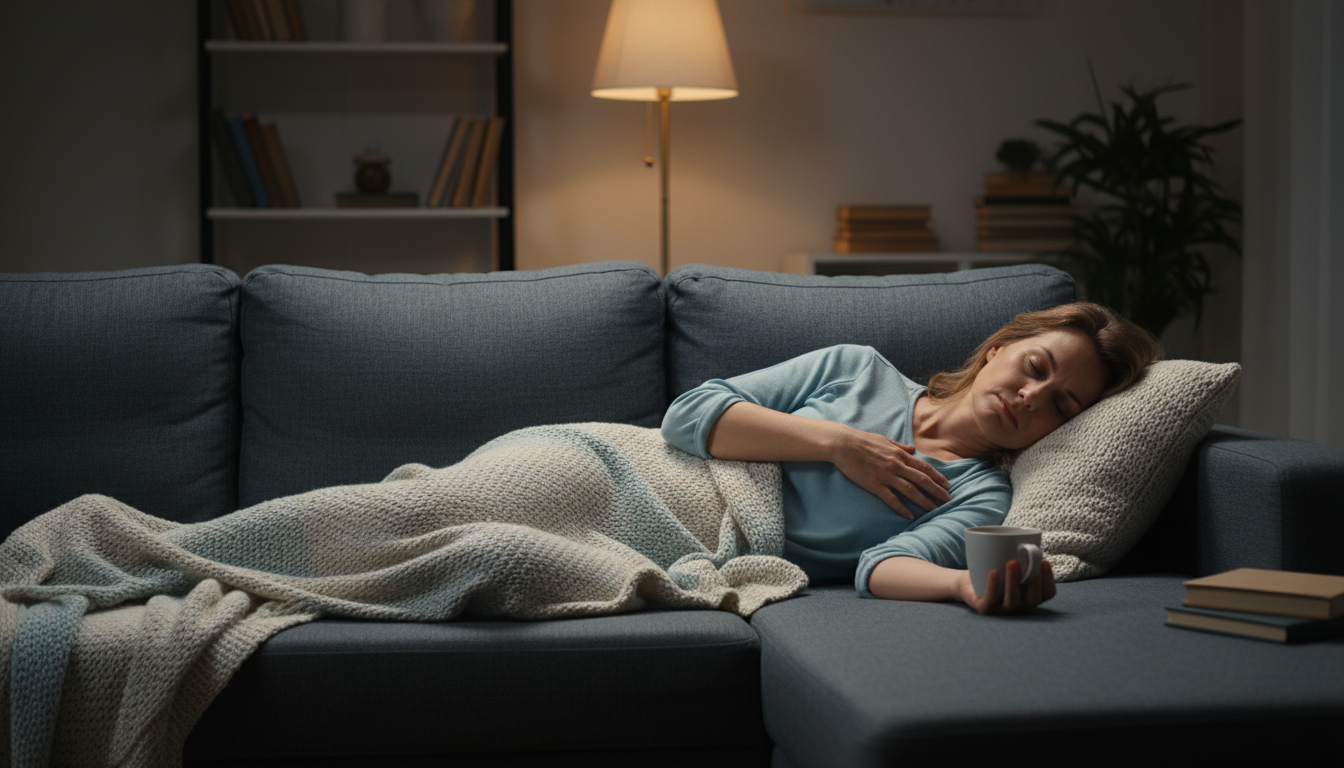The Role of Hormones in Women’s Emotional Health: How BHRT Makes a Difference
Hormones do far more than drive fertility or mark the stages of a woman’s life. They’re powerful chemical messengers that influence energy, sleep, metabolism, stress response, sex drive, and—maybe most noticeably—mood. When those hormones drift out of balance, emotional health can take a hit. At OTR Health & Wellness, we see this every day: women who are high-functioning on the outside but privately dealing with anxiety spikes, irritability, weepiness, or a sense that they just don’t “feel like themselves.” That’s where a thoughtful, personalized approach like bioidentical hormone replacement therapy (BHRT) can make a meaningful difference.
Hormones and the Female Mood Landscape
Women’s hormones don’t stay flat—they ebb and flow through the month and across the decades. Estrogen, progesterone, and testosterone are the big three, but thyroid, DHEA, and even cortisol also shape how we feel emotionally.
Estrogen supports serotonin and dopamine, which are key “feel good” neurotransmitters. When estrogen dips, so can mood and motivation.
Progesterone has a calming, soothing effect. It can support GABA, the brain’s “brake pedal.” Low progesterone often shows up as anxiety, trouble sleeping, or feeling on edge before a period.
Testosterone isn’t just a “male” hormone. In women, it supports confidence, drive, focus, and a sense of vitality.
Thyroid and adrenal hormones help regulate energy and stress. If they’re off, it’s easier to feel overwhelmed or emotionally flat.
This is why so many women notice emotional shifts during PMS, after pregnancy, approaching perimenopause, and in menopause—because the underlying hormone environment has changed. OTR Health & Wellness takes those fluctuations seriously. Instead of saying “It’s just your age” or “It’s just stress,” we look for the hormone story underneath the symptoms.
When Hormones Fall Out of Balance
Hormone imbalance doesn’t always look dramatic. Sometimes it’s subtle: a shorter fuse, crying more easily, struggling to handle normal pressures, or suddenly feeling less social. Other times it’s more intense—monthly mood swings, irritability that affects relationships, or low mood that lingers after menopause begins.
Common drivers include:
Perimenopause and Menopause: Estrogen and progesterone start to decline and become less predictable. That can trigger mood swings, anxiety, sleep disruption, and even depressive symptoms.
Postpartum or After Hormonal Birth Control: Hormone shifts or suppression can leave women feeling unlike themselves emotionally.
Chronic Stress: Elevated cortisol over time can interfere with sex hormone production, leading to low progesterone or lower testosterone.
Thyroid Issues: Hypothyroidism can mimic depression—fatigue, low motivation, mental fog.
At OTR Health & Wellness, we start by listening to this full story. Symptoms matter just as much as lab values. A woman can be “in range” on paper and still feel emotionally off. That’s a sign we need a more personalized solution.
Why BHRT?
BHRT stands for bioidentical hormone replacement therapy—hormones that are structurally identical to the ones your body makes. That’s different from some traditional hormone therapies that use synthetic or non-identical hormones. Because BHRT mirrors the body’s own chemistry, many women find it feels more natural and more finely adjustable.
Here are some advantages of BHRT as used by OTR Health & Wellness:
Precision and personalization: Dosing is based on your symptoms, labs, age, and goals—not a one-size-fits-all protocol.
Supports emotional stability: By restoring estrogen and progesterone to more youthful, balanced levels, many women experience fewer mood swings, less anxiety, and better sleep.
Optimizes multiple hormones: OTR Health & Wellness doesn’t look at estrogen alone. We assess progesterone, testosterone, thyroid, and adrenal patterns to create emotional stability from several angles.
Better quality of life: When hormones are balanced, women often report they can handle stress better, relate to loved ones more calmly, and enjoy daily life again.
Estrogen, Progesterone, and Your Mood
Let’s dig a little deeper into the two hormones that most directly affect emotional health.
Estrogen helps regulate serotonin, which influences mood, appetite, and sleep. That’s why sharp drops in estrogen—like right before a period or in perimenopause—can bring on irritability, sadness, or even panic-like feelings. By using bioidentical estrogen at the right dose and route, OTR Health & Wellness can smooth out some of those swings.
Progesterone is often the unsung hero. When it’s low, women describe feeling edgy or wired-tired—exhausted but unable to relax. Bioidentical progesterone has a more calming, natural effect than some synthetic progestins. Many women on BHRT say, “I finally slept,” or “I don’t snap anymore,” once levels are restored. That calmer baseline is a huge win for emotional health and relationships.
Don’t Forget Testosterone
Testosterone in women is all about spark. Low levels can feel like: “I’m fine, but I’m not excited,” or, “I can do things, but I don’t really want to.” It’s linked to motivation, sex drive, muscle tone, and even that quiet inner confidence. OTR Health & Wellness often evaluates testosterone as part of a BHRT plan because bringing it back into an optimal range can lift mood and help women feel powerful in their own bodies again.
How OTR Health & Wellness Personalizes BHRT
The key word is personalized. Not every woman needs every hormone. Not every woman wants the same delivery method. And not every woman has the same emotional goals. Some are trying to stop the monthly rollercoaster. Others want help feeling steady through menopause. Others just want their edge and energy back.
A typical approach at OTR Health & Wellness may include:
Comprehensive intake and symptom mapping – to connect emotional symptoms with hormonal phases.
Targeted lab testing – to see where estrogen, progesterone, testosterone, thyroid, and sometimes cortisol are landing.
Customized BHRT plan – using bioidentical hormones in the form that fits the woman’s lifestyle (creams, pellets, or other options).
Follow-up and fine-tuning – hormones are not “set it and forget it.” OTR Health & Wellness monitors how you’re actually feeling—emotionally, mentally, and physically.
Lifestyle guidance – sleep, stress, nutrition, and movement all affect hormone metabolism, so you get support beyond the prescription.
This ongoing support is important. Emotional health is dynamic, and BHRT is at its best when it’s adjusted over time.
BHRT Is Powerful—But It’s Not Magic
A balanced view is important. Hormones are a major lever in women’s emotional health, but they’re not the only one. Trauma, thyroid autoimmunity, gut health, nutrient deficiencies, sleep deprivation, and life stress can all mimic or worsen hormone-related mood changes. That’s why the integrative, whole-person lens at OTR Health & Wellness matters so much. We’re not just raising a lab number—we’re trying to restore you to yourself.
The Emotional Payoff
When hormones are right, women often describe:
More even-keeled moods throughout the month
Less premenstrual anxiety or rage
Better, deeper sleep
More patience with kids, partners, and coworkers
Renewed interest in intimacy
Greater resilience to stress
A sense of “I’m back”
That last one—“I feel like me again”—is the outcome we love hearing most at OTR Health & Wellness.
Ready to Explore BHRT?
If you’ve been told “everything is normal” but you don’t feel normal…if your moods changed with perimenopause…if you’re tired of the monthly emotional rollercoaster…or if you simply want to age with emotional steadiness and vitality, then exploring bioidentical hormone replacement therapy is a smart next step.
OTR Health & Wellness helps women understand what their hormones are doing, why it’s affecting their emotions, and how to correct it in a way that’s safe, natural-feeling, and individualized. Your mood is not random—it’s informed by your biology. When you line those two things back up, life gets a lot lighter.



















